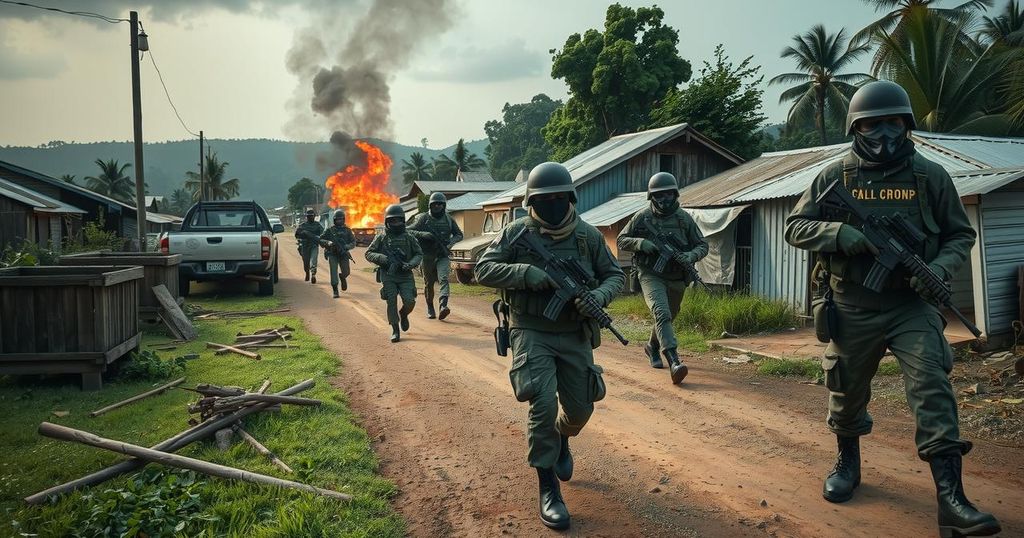Rebels from the M23 group have captured Katale and Masisi in eastern Congo, escalating the local humanitarian crisis. The situation has led to widespread displacement, with local leaders criticizing government inaction. Despite a ceasefire agreement in August, fighting has resumed, with suspicions of Rwandan support for the rebels continuing to cast a shadow over the conflict.
In eastern Congo, M23 rebels have taken control of two significant towns, Katale and Masisi, worsening an already critical humanitarian situation in the region. Local politician Alexis Bahunga confirmed that Masisi is now under M23 control, signaling a troubling development for the nearly seven million displaced individuals in the area. M23’s political spokesman, Lawrence Kanyuka, expressed via social media that the group aims to protect civilians amidst this conflict. However, reports indicate growing fears among residents, such as Bernard Kanyama from Bweremana village, who recounted recent casualties due to rebel attacks. Despite a ceasefire agreement reached in July, hostilities have resumed, raising alarms about the deteriorating conditions and the government’s perceived inaction against the ongoing rebel advances. The United Nations has indicated that Rwanda supports the M23, an allegation that Rwanda denies, further complicating the intricate landscape of regional tensions.
The M23 insurgency is part of a long-standing conflict in eastern Congo, characterized by the presence of over 100 armed groups striving for control over the region’s valuable minerals. This area, bordering Rwanda, has been a flashpoint for violence and instability, leading to massive displacement and humanitarian crises. International reactions have intensified as conflicts resume despite ceasefire agreements, highlighting a failure to stabilize the region and protect vulnerable populations.
The seizure of Katale and Masisi by M23 rebels reveals the escalating conflict in eastern Congo, where humanitarian conditions continue to deteriorate rapidly. Local leaders and residents express their despair over the government’s inaction as the violence drives countless families into perilous situations. With underlying issues linked to foreign involvement still unresolved and hostilities persisting, the outlook for peace remains bleak.
Original Source: triblive.com






